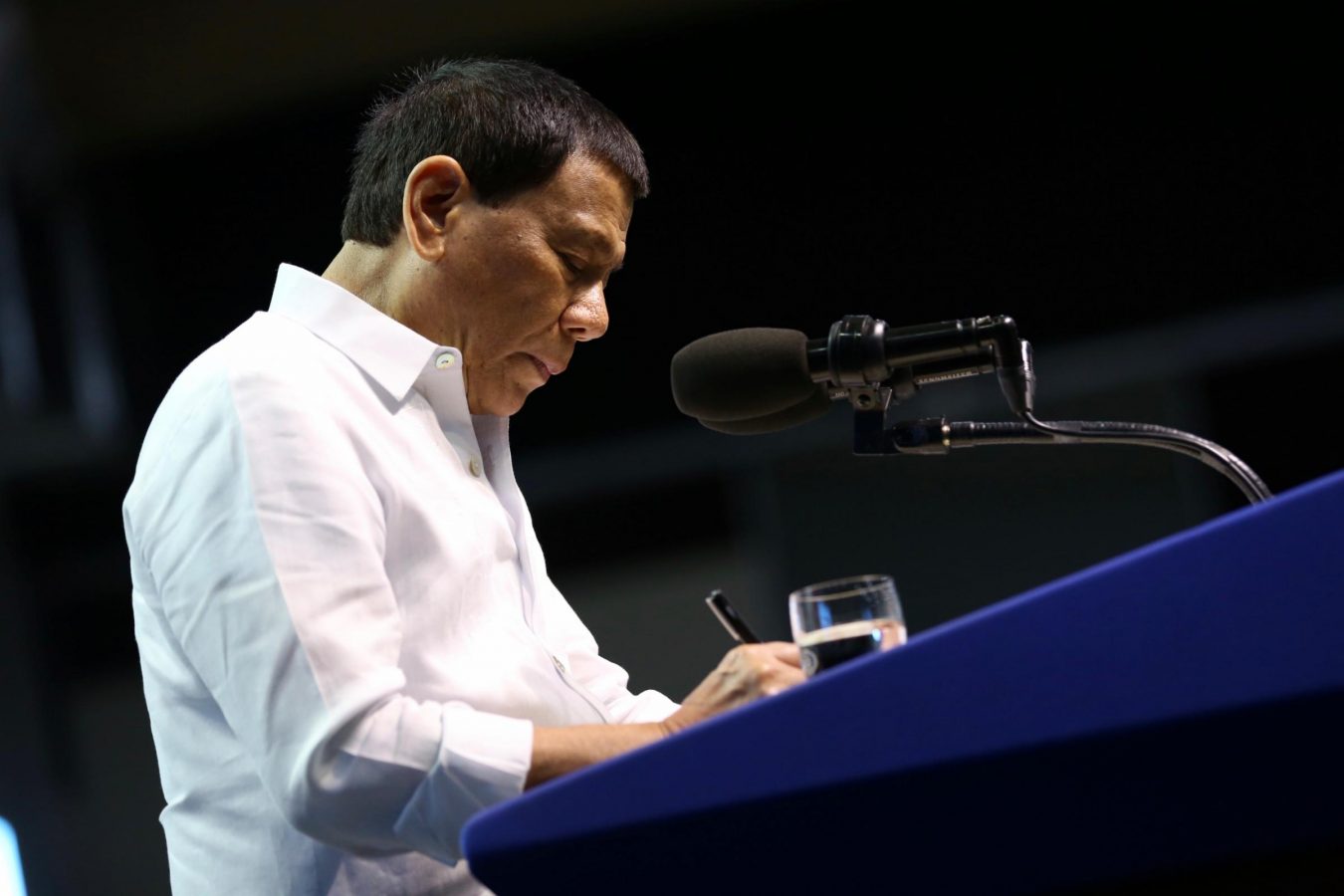Headline
Duterte enacts OFW Handbook law

Duterte signed Republic Act (RA) No. 11227, also known as the Handbook for OFWs Act of 2018, last February 22 but a copy of it was only made public by Malacañang on Saturday, March 2.
(RICHARD MADELO/PRESIDENTIAL FILE PHOTO)
President Rodrigo Duterte signed into law a bill mandating the publication of a standard handbook containing the rights and responsibilities of overseas Filipino workers (OFWs).
Duterte signed Republic Act (RA) No. 11227, also known as the Handbook for OFWs Act of 2018, last February 22 but a copy of it was only made public by Malacañang on Saturday, March 2. The new law is the reconciled version of Senate Bill 192 and House Bill 8110.
The new law directs the Philippine Overseas Employment Administration (POEA) to “publish, disseminate, and update” the handbook “as provided by Philippine laws and the existing labor and social laws of the countries of destination that will protect and guarantee the rights of migrant workers.”
The handbook, which will be written in English with translations in local languages, will be given free of charge to every land-based or sea-based OFW.
The creation of the handbook aims to empower every OFW by making them fully aware of their rights and responsibilities; complement the worker education program of various agencies; provide basic information on the labor and living conditions in the country of their destination; make the workers well aware of the benefits and drawbacks of working overseas; and provide necessary information for their reintegration into the Philippine society.
Aside from the publication and dissemination, the POEA shall also provide comprehensive gender-sensitive Pre-employment Orientation Seminars (PEOS) that will tackle not only the rights and responsibilities of OFWs but also the prevention of illegal recruitment.
The Department of Labor and Employment, meanwhile, is mandated to “see to it that labor and social welfare laws in the foreign countries are fairly applied to migrant workers and whenever applicable, to other overseas Filipinos including the grant of legal assistance and the referral to proper medical centers or hospitals.”
Senator Emmanuel “Manny” Pacquiao, the author of the Senate’s version of the bill, earlier said it is the government’s obligation to look after the millions of Filipino migrant workers around the globe.
“We want to equip our OFWs with the necessary information they can access once they are out there in the global marketplace,” he said.





















